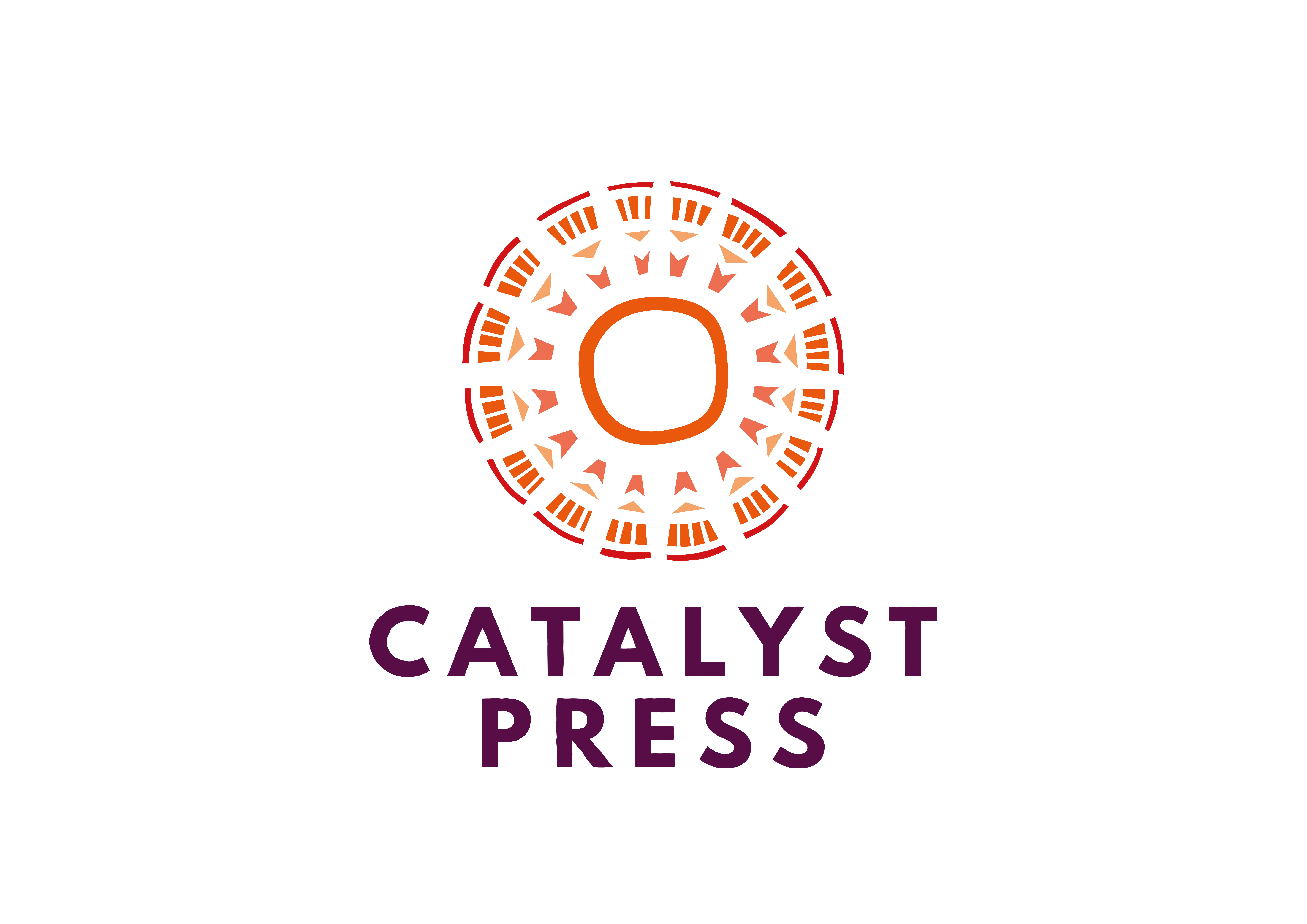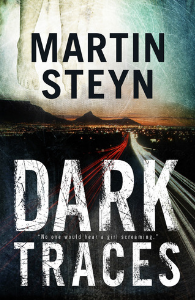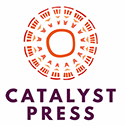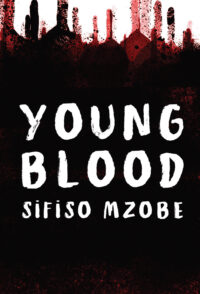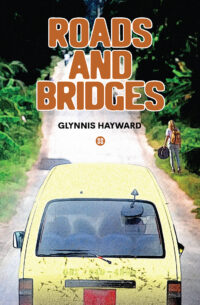We’ve been re-posting interviews with Catalyst authors that originally appeared in our newsletter, because everyone—newsletter subscriber or not—should read these. Our authors are that good. But if you wanted to subscribe to our monthly newsletter, we wouldn’t mind. In fact, we’d be pretty happy about it. You’d get interviews like this plus event updates, giveaways, new release info, and more!
These past few months have been exciting for us, and Dark Traces is certainly a big part of that. The US-debut thriller by Martin Steyn has earned him quite a bit of praise. Library Journal called it a “captivating debut thriller,” and in a starred review, Kirkus praised the novel as “a dark, intriguing, and satisfying tale with strong characters.” We chatted with Martin about Dark Traces, his process, and the politics of crime writing.
Dark Traces is out now and available through Indiebound and Amazon. You can also read an excerpt from the novel here.
There is a real renaissance of crime/thriller novels in South Africa right now. Why do you think it’s such a popular genre?
It depends on how you look at it. There is no renaissance from a reading point of view—crime fiction and thrillers have always been popular in South Africa, we’ve simply mostly been reading international writers. The renaissance is on the writing front and only really in the Afrikaans market. Local English writer Mike Nicol told me at a recent festival that there isn’t a corresponding boom in English crime fiction. On the contrary, he has ventured into espionage with his latest title, Agents of the State. Why this is, I don’t know, because international crime writers remain popular.
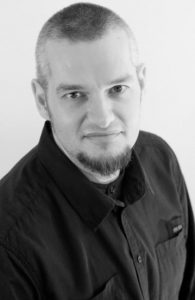
In Afrikaans, however, I think it’s simply down to a matter of supply. Before Deon Meyer no one really wrote serious crime fiction in Afrikaans. In recent years, a number of quality crime writers arrived on the scene and Afrikaans readers are increasingly embracing them, obviously enjoying reading well-written crime novels in their own language set in their own country.
The genre itself, like romance, has always been popular. Globally. And it’s not just fiction. High profile crimes are routinely on the front pages of newspapers for days. People are intrigued by crime, whether it’s the sensationalism they’re after or understanding why it happened. Many people enjoy thrill rides, which is why roller coasters are popular. In fiction, that kind of experience is often to be found in crime thrillers. Readers also enjoy trying to figure out who the guilty party is, all the while hoping to be surprised in the end. For me it’s about the how, how the detectives figure out who did it and why it was done, which is why I write police procedurals.
Continuing on that theme, there’s been some critical pieces that have examined the idea of the crime novel as a political work in South Africa. What are your thoughts on that?
To me “politics” refers specifically to political parties and government, which is something I have absolutely no interest in. I have even less interest in getting involved in it, whether in life or fiction. My interest lies in violent interpersonal crime, its etiology, its investigation and its impact on those involved. It started with wanting to understand how a serial killer is created, how a man comes to derive pleasure from torturing and killing strangers. In the process I also delved into victimology and became increasingly aware of the extent to which women are victimized, not only by serial killers but in general.
In South Africa, for example, more than half of women who have been murdered were killed by their partners. So if you’re a woman and your life ends in murder, more often than not it’s the man who is supposed to love you who did it. In addition, sexual violence is rife in South Africa. Rape tends to be considered a female problem, but it’s not. Rape is a male problem. We men are the problem, whether we’re actually doing it or not doing anything about it. We men need to speak against violence against women. Crime novels do present an opportunity to do this, and to do it in an indirect, nonthreatening way.
Do crime novels and thrillers make it easier to talk about some of the political and social issues, like violence against women?
My books are first and foremost intended to be entertaining stories and I write them for love, not activism. But I do write about that which bothers me and what bothers me most is violence against women. So my first three books all deal with that in some way, the second and third more directly than Dark Traces. I distrust soap boxes—they tend to fall over—so I prefer to just show the situation with as much truth as I can, and have readers experience it and draw their own conclusions. The power of stories lies in exposing us to different viewpoints, in effect to live through another person’s experience of life in a safe space.
For instance, last year I read Michelle Hattingh’s I’m The Girl Who Was Raped. Going with her through the rape, its aftermath, her attempts at coping, and the impact it still has on her three years after the fact offers an opportunity to gain understanding and empathy, which is much more effective in getting the message across than simply telling someone, “Don’t do it.” Of course, this book is nonfiction and would probably not be read by those who really should. But they might read thrillers. So if you’re a thriller writer, and this issue lies close to your heart, you can weave it into your fiction in a very natural way. What we desperately need in the world today is empathy, the ability to understand and accept that we differ in many ways, and it’s okay. Stories are a wonderful vehicle for achieving this.
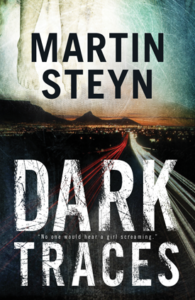 What’s the most important thing for you when beginning to write a new story—character, plot, setting?
What’s the most important thing for you when beginning to write a new story—character, plot, setting?
I start with a situation, a particular crime or criminal. In Dark Traces it was the killer. I enjoy reading true crime and I read about this serial killer who fascinated me. I wanted to write a story about such a killer, so I researched him, specifically, and sexual sadists in general, and used that to build the character for my book. Then I took my two detectives, Jan Magson and Colin Menck, put them in the car driving along the Vissershok Road towards the scene where a victim’s body was found, while I got into the back and listened in on their conversation. At the scene they talk to the pathologist, they have a look at the body and surroundings, and they follow whatever leads they have. For the most part, this is the way I write. I like the story to unfold in an organic way, rather than meticulously plotting all manner of twists and turns. As a reader, as well, I prefer stories that feel natural and real.
Dark Traces is your US debut, what do you hope US readers take away from your work?
Hopefully more than a few Afrikaans swear words. I’m happy whenever someone feels
their time between my pages has been well spent. I started writing because getting lost in Stephen King’s worlds was magic. One of my favorite feelings is that warm contentment when I close a good book, that “I’m really glad I read that” feeling. That is what I hope every reader takes away from my work.
What’s next for you?
I’m in the finishing stages of my fourth Afrikaans novel and it is pretty much all-consuming at the moment. When it is done there will be a bottle of red wine, Flagstone’s Writer’s Block, a 2015 Pinotage.
